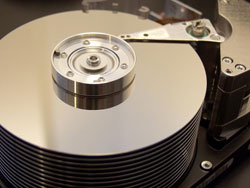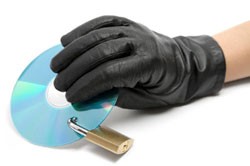Gaining and Understanding of Computer Forensics

Computer forensics is a very popular career choice, but what exactly is it? It is more than the stuff you see on CSI, and most likely not as glamorous.
What is Computer Forensics?
 In any type of crime investigation forensics plays a vital role in unraveling the crime. With the advancement in technology, computer forensic experts have a very important responsibility in the investigation. The most common question asked by laymen is what computer forensics implies. Computer forensics is defined as the detailed study using research and implementation of computer sciences with the aim of collecting digitalized evidence in crimes and other scientific purposes. Digital evidence means information that is available in a digital format, which includes data stored on the computer, portable discs, and printed documents. A government certified computer forensic expert is authorized to investigate within the computer networks and systems. They then apply several technical methods to collect the digital proof to assist the investigators. With the increasing instances involving cyber and internet related crimes, the need for computer forensic experts are rising.
In any type of crime investigation forensics plays a vital role in unraveling the crime. With the advancement in technology, computer forensic experts have a very important responsibility in the investigation. The most common question asked by laymen is what computer forensics implies. Computer forensics is defined as the detailed study using research and implementation of computer sciences with the aim of collecting digitalized evidence in crimes and other scientific purposes. Digital evidence means information that is available in a digital format, which includes data stored on the computer, portable discs, and printed documents. A government certified computer forensic expert is authorized to investigate within the computer networks and systems. They then apply several technical methods to collect the digital proof to assist the investigators. With the increasing instances involving cyber and internet related crimes, the need for computer forensic experts are rising.
Computer Forensics Techniques for Networks
Some of the common techniques used to collect evidence from computer networks include packet sniffing, IP address tracing, and email address tracing. Under the first method, the information that is transmitted over the networks is studied to collect the proof. The packet sniffing technique may include data using usernames, passwords, send and received mails, and any other type of information. While tracing the Internet Protocol address a reverse technique using the number of servers that lie between the source and the receiving system are studied. Known as hops, the lowest address is the ISP server that is verified and the information of the owner is collected with its assistance. Email tracing analyses the email headers that comprise the source system’s IP address, which is used to trace the IP. The headers provide crucial data, which include the origination of the mail, date, and time of origination, and other related information.
Computer Forensics Techniques for Systems
The first method is the analyzing the file structure of a computer system to try to find any information that appears suspicious. In case some files are encrypted or garbled, the information is first decrypted using automated tools and utility programs. Often, users utilize various sources of removable discs to store information. Recovering data from a formatted disk is impossible but computer forensic experts use advanced techniques to recover such information. However, the recovered information can be corrupted that then requires to be collated to ensure that the collected data is useable. Steganography is the method by which information is stored as images, sounds, or an uncommon format. This type of information is difficult to catch and is easily transferable over the Internet. To bring back the information to the original format, experts use Steg-Analysis and advanced decryption techniques. Another important method to collect digital evidence is studying the print outs, which again could be garbled or encrypted. Experts use various microscopic analyzing techniques to understand this data.
Becoming a Computer Forensic Expert
 One of the most important functions of a computer forensic expert is to recover, analyze, and present information collected from a computer is a manner that can be used as digital evidence during a crime investigation. Often, the experts are required to collect information that is not easily recoverable by ordinary users. Therefore, the most basic requirement to becoming a computer forensic expert is to understand as much as possible about the computer systems and networks. Studying different types of computer media is important for a computer forensic expert and hence understanding the systems and learning various methods for data recovery enables an individual to create a niche in this segment. After a degree in forensic science, individuals aspiring to become computer forensic experts must enroll with a well-known computer-training institute.
One of the most important functions of a computer forensic expert is to recover, analyze, and present information collected from a computer is a manner that can be used as digital evidence during a crime investigation. Often, the experts are required to collect information that is not easily recoverable by ordinary users. Therefore, the most basic requirement to becoming a computer forensic expert is to understand as much as possible about the computer systems and networks. Studying different types of computer media is important for a computer forensic expert and hence understanding the systems and learning various methods for data recovery enables an individual to create a niche in this segment. After a degree in forensic science, individuals aspiring to become computer forensic experts must enroll with a well-known computer-training institute.
Getting the Training
Once an individual acquires the basic skills discussed above, he or she must procure a certification from a licensed body from their respective states. Such programs provide individuals an understanding on the basics of this field along with the practical knowledge. Individuals are taught various methods to recover data from computer drives that are formatted or damaged. Some of the higher end institutions provide the trainees the opportunity to visit a crime scene and perform various functions, such as recovering lost data, analyzing the damage, and rectify the mistakes. Moreover, the individuals are trained in various forensic techniques used to recover information and the guidelines to be followed while undertaking a legal audit. Some of the areas where the trainees are provided rigorous training include cross-drives analysis, recovering volatile information, and encrypting various file systems.
Gaining Experience
Before procuring a job with a reputed crime investigation company, it is mandatory to have a minimum experience of five years. Therefore, individuals are advised to take up an internship with a company or becoming a consultant after completing their certification training. Individuals can associate themselves with smaller crime investigations while slowing building up on their portfolio. After gaining the required experience, you can apply for a job with a larger firm and interview with these companies. Alternatively, individuals with the necessary training and certification can choose to become freelance consultants while in their individual practices.
Computer Forensic Expert Salary
 Irrespective of the career path chosen by a computer forensic expert, the salaries received by these individuals is high. Entry-level jobs for experts with less than one-year experience earn approximately $50000 per year. Computer forensic experts with one to four years of experience earn between $40000 and $70000 annually. For experts with more than ten years of experience garner salaries in excess of $110000 per year. Besides the experience, salaries paid to computer forensic experts depend on the type of the employer. The American federal government pays the highest salaries to these experts, which ranges between $50000 and $93000 per year. The state government salaries are in the range of $40000 to $75000 per annum. Some experts with several years of experience in a large organization can earn over $135000 annually.
Irrespective of the career path chosen by a computer forensic expert, the salaries received by these individuals is high. Entry-level jobs for experts with less than one-year experience earn approximately $50000 per year. Computer forensic experts with one to four years of experience earn between $40000 and $70000 annually. For experts with more than ten years of experience garner salaries in excess of $110000 per year. Besides the experience, salaries paid to computer forensic experts depend on the type of the employer. The American federal government pays the highest salaries to these experts, which ranges between $50000 and $93000 per year. The state government salaries are in the range of $40000 to $75000 per annum. Some experts with several years of experience in a large organization can earn over $135000 annually.
Tools used by computer forensic experts
Computer forensic experts commonly use several tools. These include hex editors, disassemblers, disc analyzers, decryption devices, packet-sniffing devices, and various types of DNA tools.

